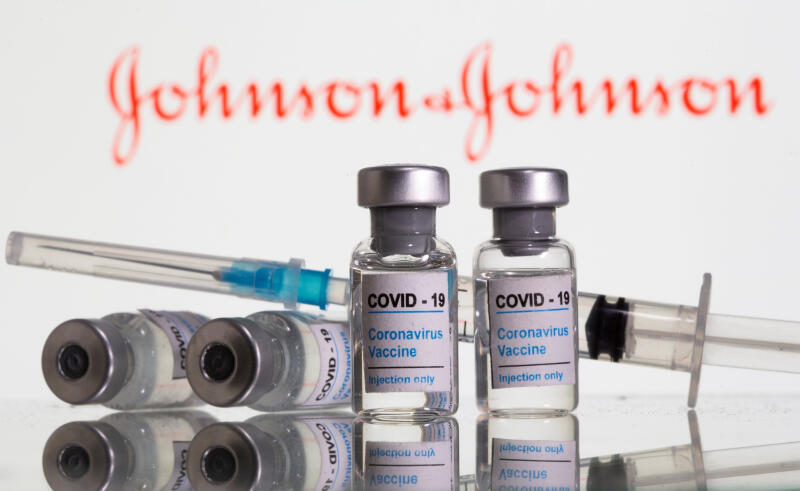Johnson & Johnson Covid-19 vaccine effective in countries with variants: WHO experts
Sign up now: Get ST's newsletters delivered to your inbox

The WHO's Strategic Advisory Group of Experts said Johnson & Johnson's vaccine had proven effective against what are termed variants of concern.
PHOTO: REUTERS
GENEVA (AFP) - The WHO's expert vaccine advisers on Wednesday (March 17) recommended Johnson & Johnson's Covid-19 jab for use in countries where coronavirus variants of concern are circulating.
The World Health Organisation gave its seal of approval last Friday to the vaccine, which has the advantages of being a single-shot jab that can be stored with regular refrigeration rather than ultra-cold temperatures.
After meeting on Monday, the WHO's Strategic Advisory Group of Experts (Sage) on Immunisation issued its recommendations on Wednesday on how the vaccine should be used - and said it had proven effective against what are termed variants of concern.
Comparing mass trials of the vaccine in different countries, Sage said that despite the South African variant being predominant in that country, "similar efficacies were observed as in the US", it said, "where newly emerging variants of concern were not predominant" during testing.
The same was true in Brazil, which has had its own predominant variant in circulation.
"We have a vaccine that shows to be safe and it shows to have the necessary efficacy to be recommended by us for use in people above the age of 18, without an upper age limit," Sage chairman Alejandro Cravioto told reporters.
"In the countries where there is a high spread of the variants and in countries where we now have information about the use of this vaccine to control Sars-CoV-2 caused by these variants, we recommend that you use it."
Sars-CoV-2 is the virus that causes Covid-19 disease.
Across the board, a single dose of the vaccine has 66.9 per cent efficacy against symptomatic infection; 76.7 per cent efficacy against severe Covid-19 disease after 14 days; and 85.4 per cent efficacy after day 28, Sage said.
"Vaccine efficacy against hospitalisations was 93.1 per cent. Vaccine efficacies were maintained across genders, age and ethnicities," the experts said.
Sage said that as with other Covid-19 jabs, it should be injected under health care supervision, with medical treatment on hand in case of allergic reactions.
People should wait at least 14 days before receiving any other vaccine.
As for pregnant women, there was insufficient data to assess vaccine-associated risks, though breastfeeding women should be offered the jab as normal.
People who have already had Covid-19 should be offered the vaccine, but may opt to wait until up to six months after infection, because they will already have a degree of natural protection.
However, in areas with variants of concern, they should not step back in the queue as "emerging data indicate that symptomatic reinfection may occur".
"The optimal interval between a natural infection and vaccination is not yet known," said Sage.
The J&J vaccine is the only single-shot jab to have been granted WHO authorisation.
Dr Annelies Wilder-Smith, technical adviser to the Sage secretariat, told reporters the jab was a "welcome additional weapon" rather than a game-changer in the fight against Covid-19.
It joins the two-dose Pfizer-BioNTech jab and the AstraZeneca-Oxford vaccines made in India and in South Korea as having been signed off by the WHO.
The J&J jab won approval from the European Union last Thursday. It has also received the green light from regulators in the United States, Canada and South Africa.
The jab is one of the main vaccines being lined up for distribution to poorer countries around the world via the Covax global vaccine-sharing scheme.
Some 500 million J&J doses have been promised to the facility and the WHO hopes it can be rolled out through the programme from July, if not earlier.


